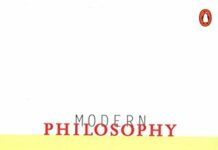
Ebook Info
- Published: 2002
- Number of pages: 152 pages
- Format: PDF
- File Size: 2.09 MB
- Authors: Roger Scruton
Description
Benedict de Spinoza (1632-77) was at once the father of the Enlightenment and the last sad guardian of the medieval world. In his brilliant synthesis of geometrical method, religious sentiment, and secular science, he attempted to reconcile the conflicting moral and intellectual demands of his epoch, and to present a vision of humanity as simultaneously bound by necessity and eternally free. In this book Roger Scruton presents a clear and systematic analysis ofSpinoza’s thought, and shows its relevance to today’s intellectual preoccupations.ABOUT THE SERIES: The Very Short Introductions series from Oxford University Press contains hundreds of titles in almost every subject area. These pocket-sized books are the perfect way to get ahead in a new subject quickly. Our expert authors combine facts, analysis, perspective, new ideas, and enthusiasm to make interesting and challenging topics highly readable.
User’s Reviews
Reviews from Amazon users which were colected at the time this book was published on the website:
⭐In SPINOZA: A VERY SHORT INTRODUCTION, Roger Scruton treats us to one of the most interesting, courageous and forward thinking philosphers that has ever lived. Spinoza, living in the right place (Netherlands) at the right time (17th century), harnessed the provocative and forward leaning teachings of Descartes, Maimonides, Grotius and others togehter with logic to construct a Euclidean-like axiomatic world view that was a first of its kind. With some revision his teachings still hold validity for many of our top intellectuals and scientists today – Einstein was a proponent. One might go so far as to say that to him we owe much of our modern concept of constitutional government and democracy. Look for his very own words in the writings of Montesquieu and thus Jefferson’s Declaration of Independence. Read this book and you will be transported to the cradle of our modern western worldview. I don’t recall much emphasis being put on Spinoza in the classroom. It’s not enough to stop at Descartes – he’s just a beginning. Read how Spinoza puts Descartes ideas to work. See how he combines the mind and the body to be one entity. See Spinoza’s ontology and how he posits God in relation to man. The text is quite readable and there are nice surprises including the magnetic attraction to Spinoza of many well known contemporaries who personally interacted with him including Leibnitz and Christian Huygens to name but two. I had fun visualizing Spinoza’s world and it got me wondering about mine. Enjoy!
⭐Roger Scruton covers every topic that you would want covered with an authoritative view that represents an expert in philosophy and a person well acquainted with the ideas in Spinoza’s work. I give it two stars primarily because I find that while it is very concise, it is clear that Professor Scruton is not very excited by many of Spinoza’s ideas. This lack of interest makes the reading much slower and more challenging, then other works on Spinoza. There are many arguments that are dismissed as “weak” or “unclear” rather than assessing the argument and making a determination if it is generally accepted or not generally accepted. If you want a short, thorough review of Spinoza, then this book will do. In my view, the high point of this work is the section on Spinoza’s life and Spinoza’s view of substance. The weakest (and dryest part) is Spinoza’s view of ideas and eternity. A much more enjoyable and lighter read is Spinoza in 90 Minutes by Paul Strathern. If I rate the book solely in terms of content (ignoring the level of engagement of the author), then my score would go to 4 stars. I rate it lower primarily because a philosophy overview, even in its most concise form, should be engaging and insightful philosophical analysis rather than routine, authoritative, professionalism.
⭐Scruton’s Spinoza is an inspirational little book that serves well as a first introduction to Spinoza. It’s also a great rejuvenator, for when one tires of analysing Spinoza’s arguments. Scruton has a beautiful prose style, and his reading of Spinoza seems to be right on target. The small size of this edition also makes it convenient to slip into your pocket, for short readings while traveling.It seems there are three ways to approach Spinoza: metaphysical, academic (historical), and political.If you’re in one of the latter two categories, then you should heed the reviews that trashed this book and look elsewhere. But if you’re a truth-seeker, this is the book for you.If you’re new to Spinoza, another accessible, enlightening introduction is Stuart Hampshire’s Spinoza. It would be a good follow-up to this book. Be sure to have a copy of Spinoza’s Ethics to read alongside. A further source of Spinoza-based inspiration is Spinoza’s “On the Improvement of the Understanding”. It is available online at several sites.
⭐This is the third short introduction on Spinoza I’ve read in a week, the other two being Durant’s section on Spinoza in his History of Philosophy and Strathern’s Spinoza in 90 minutes. Out of those three, I found Scruton’s introduction to be by far the hardest to understand. I’m not sure which of the three give the best summary, but Scruton’s introduction often went over my head or I found myself reading sections over and over again several times to try to grasp what he’s saying (oddly I often found his quotes of Spinoza to be more comprehensible than Scruton’s which seems odd for a summary work), for the most part I didn’t have to do this with the other two. In terms of a general biography, I thought Strathern’s book was the best and in a short summary of his works Durant’s book was the best. I don’t really think I’ve gained anything in this book which the other two didn’t already expound and they did better jobs.
⭐References to earlier thinkers.
⭐Scruton, in my opinion, gives a good introduction to Spinoza’s philosophy. Although at times complicated and especially to those with little or no prior knowledge of the topic, his analysis is sound and he has much appreciation for Sponoza’s approach to ethical matters and political philosophy. However, Spinoza’s thinking to justify pantheism meets with much, and according to me, justified criticism. Some attention is given to the assessment of Spinoza by others like Betrand Russell and Goethe as well as his impact on philosophers like Hegel. A good read. I also would recommend Scruton’s introduction on Kant.
⭐I knew Spinoza was a difficult read, so I was hoping for a little succinct commentary on the major points. Also, realizing that this is a “very short” introduction, I guess I can’t complain too much about how much went unsaid. It was a little irritating, though, to read from the author that even he didn’t understand what Spinoza meant! Not particularly helpful.The book however is very readable and avoids abstract technical and philosophical terms. I didn’t get as much as I hoped, but I did get enough to give this book a qualified recommendation. Unfortunately, if you go on to more demanding books, this little book will be of only marginal help.
⭐Reading Spinoza alone is quite difficult to decipher, but this introduction really helped me understand what he was saying, and why he was saying it. Ideas such as free will and determinism were clearly explained, which helped me a lot. It would have been good if the book included some details about Hermeticism, which I think would have been one of Spinoza’s influences. It was very entertaining to read about Spinoza’s life story, which is given in the first part of the book. I recommend this book to anyone wanting to get to grips with his ideas.
⭐Readable and concise philosophy of Spinoza.
⭐Ok I’m still reading it, but first impression is that the author is making a difference to my understanding of Spinoza and wtf he is in about. Very readable, and potentially useful.
⭐I first came across Spinoza after reading a century of wisdom, and what a true find. Scruton is my new god of explaining the complex man, a fascinating book that again will make you think think think. Read it slowly and totally relish it
⭐An excellent introduction to the thoughts of Spinoza. Though much passed well above my head I found much to ponder and reflect upon. A second reading is in order.
Keywords
Free Download Spinoza: A Very Short Introduction (Very Short Introductions) in PDF format
Spinoza: A Very Short Introduction (Very Short Introductions) PDF Free Download
Download Spinoza: A Very Short Introduction (Very Short Introductions) 2002 PDF Free
Spinoza: A Very Short Introduction (Very Short Introductions) 2002 PDF Free Download
Download Spinoza: A Very Short Introduction (Very Short Introductions) PDF
Free Download Ebook Spinoza: A Very Short Introduction (Very Short Introductions)



